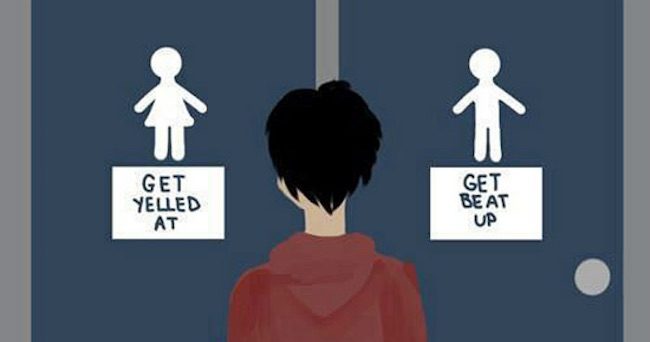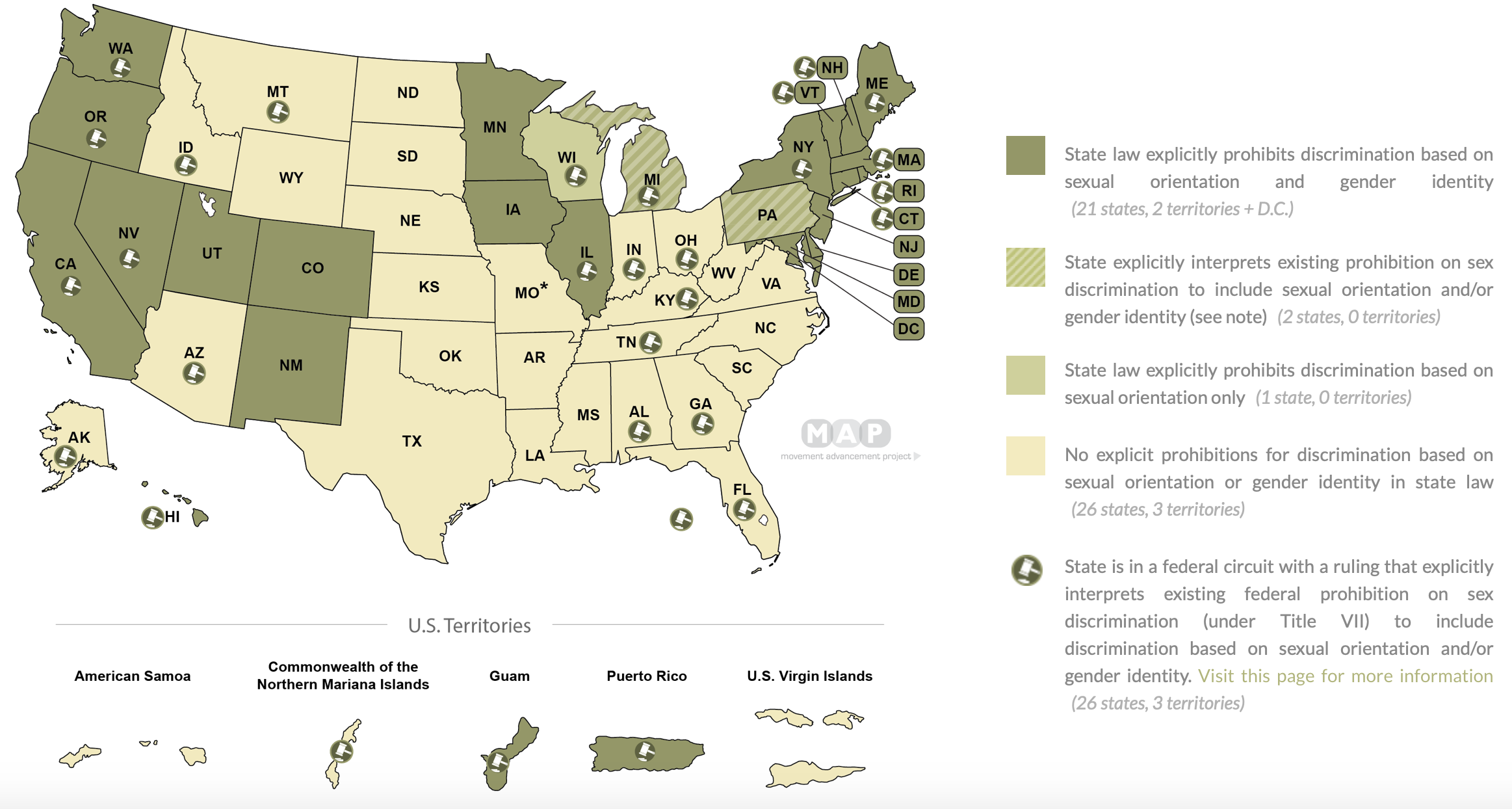What is “passing” as it pertains to trans folx?
The concept of “passing” is uncomfortably pervasive in discussions about transgender people. “Passing,” most plainly, is when a transgender person is read as the gender with which they identify as opposed to their assigned sex. For transgender women like myself, for example, it is the ability to walk down the street and have others simply see a woman, instead of perceiving me as a transgender woman or as a man.
This concept both divides and binds the transgender community, giving many of us a common goal while artificially separating the transgender community into damaging, contrived categories — people who don’t “pass,” people who sort of “pass,” and people who really “pass” and therefore are indistinguishable from cisgender people (a concept that has been colloquially termed “fish” — meaning a transgender woman who looks so much like a cis woman that you can practically smell the “fishiness” of her vagina.) Though these labels aren’t necessarily outwardly used to describe transgender people, society mentally divides a wide array of trans people into these categories, often equating one’s validity in their gender with how well they “pass.”
Wherever we turn, transgender people are bombarded with reminders that we should always strive to be read as cisgender. Whether it’s well-meaning cis folx telling us that we “don’t look trans” as if it’s a compliment, or people sighing that “if only [that trans woman] wore more makeup” then “maybe she’d look more feminine,” we hear this message loud and clear.
But why is us “passing” so important to cis people? And more confusingly, why does it feel so important to me? Why should I strive to look like a cisgender woman even though I am not a cisgender woman? And why is my identity taken more seriously when I do look cis? What is so bad about looking like a transgender woman? Won’t I technically always look like a transgender woman no matter what? After all, I look like me, and me is a transgender woman! These questions swirl around my mind as they have for years.
In the early days of my transition, “passing” was unequivocally my number one goal. I remember nights I spent crying on my mother’s shoulder about how, “it isn’t fair that all the other girls just get to be pretty and I don’t!” At that time, “passing” truly felt like life or death — more to the point, I felt that there was no point in living if I could not present as female. I’d frequently replay what my mom said after explaining the existence of trans people to me years prior — we were talking about Alexis Meade, a transgender character on the ABC Drama Ugly Betty portrayed by cisgender actress and model Rebecca Romijn.
In discussing the character, she off-handedly and casually commented, “but trans people never look as good as that.” I don’t fault my mom for having said this — education about transgender people was even more lacking at that time than it is now and I know she didn’t know any better. But her words stuck with me and echoed in my brain years later as I questioned my own future and whether I could ever truly feel beautiful.

Back then, I frequently Googled “makeup tips for transgender women” and attempted every single day to apply my makeup in a way that feminized my features. I felt incredibly discouraged when I continued to be misgendered in spite of this and hoped that if I made it obvious enough that I was trying to present as female, people would instinctively know to use she/her pronouns for me, even if they didn’t necessarily read me as female. They didn’t. I tried speaking in a higher pitch and changing the inflection of my voice so that if nothing else, people would read my voice as female. Comfortingly, they sometimes did, but usually “corrected” themselves as soon as they saw me.
Pretty quickly, I began to be read as cisgender.
By about eight months into my transition, which felt like an eternity, I reached a turning point as I slowly stopped getting misgendered. I had purchased a few bras and those chicken-cutlet-shaped breast inserts in order to give my chest a more feminine contour. I had learned to use gaffs to effectively tuck, giving me the ability to wear form-fitting clothing without having a visible bulge. I had fine-tuned my speaking voice, which was fortunately pretty high to begin with, so that I was perceived as female in conversation. Additionally, I had learned a few tricks with makeup that made my cheekbones much more pronounced and bought full-coverage foundation that held up against the force of my 5 o’clock shadow.

Gender policing is uncomfortable, even when you’re finally being policed in the correct gender.
Life felt good for a bit. But as time went on, I began to resent the expectation that I must perform femininity to its fullest extent in order to be taken seriously as a woman. While I did enjoy wearing makeup and dresses, I ultimately felt just as boxed into femininity as I once had with masculinity because I trusted that if I stopped wearing makeup, all of the comfort for which I’d fought would fall away. That comfort, that gender euphoria, felt solely dependent on the “passing” privilege I had earned by learning how to adequately perform the gender norms and match certain appearance standards traditionally imposed on women.
The discomfort I was experiencing was a result of “gender policing,” or the act of imposing traditional or normative gender expectations onto someone who is not performing these norms to one’s standards. Trans people are not the only victims of gender policing — cis people experience it as well. But while most cisgender victims can still be acknowledged as their gender even without performing it to society’s standards, the added sting for transgender people is that many of us cannot.
Cis folks need to stop using “passing” to as a marker of a trans person’s validity.
For many trans people, the ability to avoid being consistently misgendered is unfairly and frustratingly tied to our ability to “pass.” We are frequently met with anger when trying to correct instances of misgendering as others try to redirect the blame onto us.
When trying to correct people on my pronouns, I frequently ended up on the receiving end of a baffled and frustrated, “Well how did you expect me to know [that you’re a woman]?” or “You have to understand how hard it is for me [to gender you correctly]? I do understand how hard it is for people to unlearn gender assumptions because we have been taught for years that they are reasonable to make, but that does not mean that I won’t challenge you to change those assumptions.
And while I don’t think that “passing” should be meaningful, being read as cisgender affords people immense privilege compared to trans people who are not read as cis.
For example, I can walk down the street and not worry that men will harass me for being transgender. In NYC, many of my transgender friends endure transphobic slurs, horrific taunts of, “Dude, that’s a man in a dress,” or are simply glared at for daring to exist in public as their authentic selves.
These days, I can enter the women’s bathroom without others questioning my presence in the space. In the early days of my transition, however, bathrooms were a terrifying battleground in which I did not feel safe. I was regularly stared at, had my presence questioned, and frequently overheard whispered confusion about my gender from those around me. Though I was lucky enough to not face more severe abuses, many trans people are harasses or attacked for entering bathrooms that align with their gender identity.

Since 29 states lack adequate workplace protections for trans people, many employers can openly refuse to hire us solely because we are transgender. When applying for jobs, “passing” transgender people — especially those who have updated their legal gender markers — can feel more confident that they will not be denied a position on the basis of their gender identity. Even in states that do have protections for transgender people in the workplace, proving gender identity as the cause of workplace discrimination can be incredibly difficult, so people who are read as transgender still face this constantly.

Pursuing “passability” takes a lot of mental and physical energy.
Privileges like these are significant and valuable. As such, the ability to be read as cisgender is consistently sought after as one of the most crucial goals of trans existence. However, pursuing “passability” demands so much of our energy and attention that many transgender people lose focus on other important parts of our lives. For example, up until a few months ago, I compulsively applied makeup every single day because I so firmly believed that my ability to pass was inextricably tied to my ability to expertly apply makeup in a way that “feminized” my features. I often did this at the expense of sleep, regularly waking up an hour earlier than necessary in order to apply a full face of makeup even when I did not want to.
I also neglected to participate in activities that would prevent me from applying makeup, such as unplanned sleepovers at other people’s homes if I did not have time to grab my makeup bag, or camping, which I had formerly loved. I refused to leave my home without makeup, even for activities as small as dropping off laundry or grocery shopping, because I was so terrified of being clocked (read as transgender). On days when I didn’t like how my makeup looked, or felt I looked “too masculine,” I made far too many bathroom trips in order to obsess over my appearance in the mirror and attempt to fix whatever I saw as my flaws. This took time away from work, from class, and from bonding with my loved ones and overall impeded my ability to focus on anything else important in my life.
Our drive to pass also creates unnecessary divisiveness within the transgender community. Trans people who “pass” and those who don’t are pitted against one another by a general attitude that those who are read as cisgender are somehow “better at transitioning” or “better at being a woman/man” than those who aren’t. Trans people often internalize this attitude, causing many trans folx to become either jealous of or frustrated with trans people they feel “pass” more easily. It reinforces internalized transphobia as we are bombarded with the belief that the validity of our gender is dependent on how easily we are perceived as that gender by others. In reality, our gender is valid because we say that it is valid. All trans people deserve respect and validation, and to be gendered and named correctly, regardless of how we look or sound.
None of this is to undervalue the significance of “passing” to individual transgender people. Though I wish it didn’t feel important, “passing” yields tremendous rewards on both a personal and a societal level. I feel a lot of comfort and security in the fact that when I look in the mirror, I see someone I perceive as female staring back at me. My dysphoria has become much less severe since I stopped growing visible facial hair (I now mostly grow peach fuzz) and my cheekbones became more pronounced. When I’m wearing a full face of makeup, I hardly experience dysphoria at all.
I strove to pass for a LONG TIME, BUT I EVENTUALLY REALIZED I HAVE THE RIGHT TO BE RESPECTED NO MATTER WHAT I LOOK LIKE.
For a long time, I — like many transgender people — strove to “pass” because I knew that it would make my life easier in more ways than I could count.
And it has.
But I truly believe that if the ridiculous societal standards for what is beautiful or attractive and what is not were expanded past their current finite scope, trans people would experience much less dysphoria because they would be conditioned from birth to find joy rather than pain in their natural features. If we spent less time defining breasts and vaginas as inherently female and flat chests and penises as inherently male, trans people would experience less top and bottom dysphoria. If we stopped defining facial hair as exclusively male, I doubt that I would have wasted hours of my life pulling out my facial hair one by one or wanting to claw the skin off my face.
The problem is that we have for so long been conditioned to believe that these features are so inextricably tied to one gender that when we don’t identify as that gender, we grow to hate and resent them, especially when others see those features and use them as clues to incorrectly identify our gender. These features often become the foci of our gender dysphoria.
I often face tremendous opposition when I insist that cis folx need to put in work to learn how to be better at correctly gendering trans people. The question I’m most commonly asked after calling someone out for misgendering a trans person is, “Well, how am I supposed to know that they’re transgender by looking at them?,” which is intended as a defense of their actions but is actually exactly the point. You don’t know someone’s gender by looking at them, so why use gendered pronouns at all until you know how they identify? Why not introduce yourself with your pronouns, ask what pronouns somebody uses, or wait until somebody they trust uses their pronouns, instead of taking the tremendous risk of invalidating somebody’s identity? If you agree that all trans people — not just those who are read as cisgender — deserve your respect, then it is crucial that you take the extra steps necessary to show it.
LETS END THE CONCEPT OF PASSING! MMMMKAY?
I dream of a world in which “passing” is a dead concept and people everywhere are simply allowed to be and to live and feel amazing and beautiful and wonderful just the way that they are. Unfortunately, achieving that on a global scale is a long fight away. But on a much smaller scale, each of us has some amount of power in empowering and validating all of our trans siblings. By creating safe spaces filled with trans allies and spending time educating those around you on trans inclusion and sensitivity, you move the spaces you enter and ultimately the world a little closer to being a safe place for all transgender people — not just those who “pass.” The fight may not end with you, but it starts with all of us.


YES OMG THANK YOU the concept of passing is so outdated and archaic and you’d think femininity/masculinity is something that WOULD be completely relevant to the individual but unfortunately people are lazy and will always find an excuse to defend their ignorance/shitty behavior.
ps you were never not pretty ! xx
God, I totally agree! so outdated, yet people still demand it from trans people. Ahh, thank you, I appreciate that.
It is impressive.
Thank you so much for following my articles well.
There are many jobs online on my website if you like doing a great favour for friends, relatives and loved persons.
https://comedy-romance.blog/jobs-online-to-make-much-money/
You are welcome in London at anytime.
Best wishes
XX XX
Thank you!
You are welcome in London at anytime.
XX XX
Thank you so much for following my articles well.
Hoping you are happy there.
It is my pleasure to collaborate together in different useful businesses soon.
You can read all homepage of my website to know what is the best to you to collaborate together.
Best wishes
XX XX
Pingback: Transgender Healthcare is NOT Cosmetic. Employers, it's time to step up your game. • Trans & Caffeinated
I still hate my big fat ass and major wide thighs. My spare tire of a stomach and layering my clothes are the only thing that covers them and just makes me look like a “big”, stout guy. You know what? Those hips, thighs, and general lower body gives me ample amounts of lower body strength. Having a pussy means I don’t have to worry about wearing a jockstrap and cup when playing sports, though I have to bring an STP or small bucket for pissing when out hiking.
My voice, while still high for my preference, has had others think I’m gay (ie like men for clarity, as I know trans and sexual orientation confuse people, not that there’s anything wrong with that!), and I’ve used to my advantage for getting free stuff or better tips from other guys—and people thinking I’m gay also think I’m more of a passive or subservient/bottom type, and when they try to “top” me in terms of interpersonal dynamics, I bring out my inner queen to bring back egalitarianism to the dynamic.
Basically…I find a positive on those body parts that still remind me I was born female, to counter the negative talk.
Best part about passing? When people find out I am trans and assume I’m MtF. The shock on their faces when I clarify I’m a post op FtM is priceless.
What is a pain when discussing passing, for me, occurs when people see I pass and then try to say I reinforce gender norms. Wtf? You want what I have, then this BS? Yea, that usually kills my desire for any further conversation.
Pingback: Some Women Have Penises. Get Over It. • Trans & Caffeinated
Pingback: More than 1 Million Women in the U.s. Have Penises. sensational! now Get Over It. • Trans & Caffeinated
Pingback: Dating While Trans: The Troubling, Often Demoralizing Reality • Trans & Caffeinated